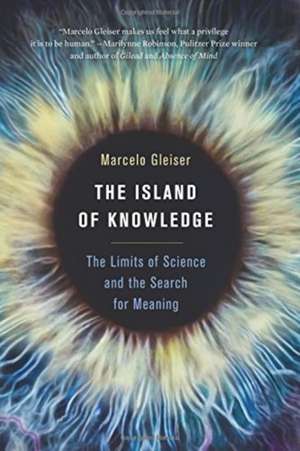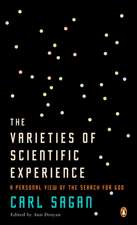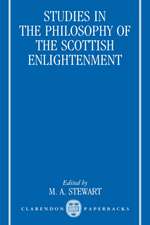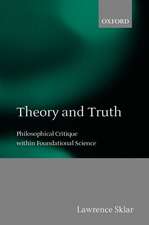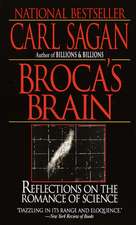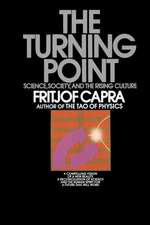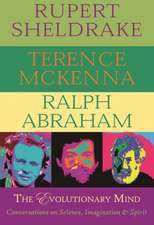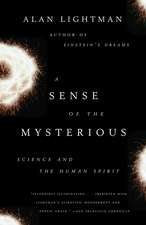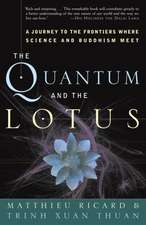The Island of Knowledge: The Limits of Science and the Search for Meaning
Autor Marcelo Gleiseren Limba Engleză Paperback – 26 oct 2015
Do all questions have answers? How much can we know about the world? Is there such a thing as an ultimate truth?
To be human is to want to know, but what we are able to observe is only a tiny portion of what's “out there.” In The Island of Knowledge, physicist Marcelo Gleiser traces our search for answers to the most fundamental questions of existence. In so doing, he reaches a provocative conclusion: science, the main tool we use to find answers, is fundamentally limited.
These limits to our knowledge arise both from our tools of exploration and from the nature of physical reality: the speed of light, the uncertainty principle, the impossibility of seeing beyond the cosmic horizon, the incompleteness theorem, and our own limitations as an intelligent species. Recognizing limits in this way, Gleiser argues, is not a deterrent to progress or a surrendering to religion. Rather, it frees us to question the meaning and nature of the universe while affirming the central role of life and ourselves in it. Science can and must go on, but recognizing its limits reveals its true mission: to know the universe is to know ourselves.
Telling the dramatic story of our quest for understanding, The Island of Knowledge offers a highly original exploration of the ideas of some of the greatest thinkers in history, from Plato to Einstein, and how they affect us today. An authoritative, broad-ranging intellectual history of our search for knowledge and meaning, The Island of Knowledge is a unique view of what it means to be human in a universe filled with mystery.
To be human is to want to know, but what we are able to observe is only a tiny portion of what's “out there.” In The Island of Knowledge, physicist Marcelo Gleiser traces our search for answers to the most fundamental questions of existence. In so doing, he reaches a provocative conclusion: science, the main tool we use to find answers, is fundamentally limited.
These limits to our knowledge arise both from our tools of exploration and from the nature of physical reality: the speed of light, the uncertainty principle, the impossibility of seeing beyond the cosmic horizon, the incompleteness theorem, and our own limitations as an intelligent species. Recognizing limits in this way, Gleiser argues, is not a deterrent to progress or a surrendering to religion. Rather, it frees us to question the meaning and nature of the universe while affirming the central role of life and ourselves in it. Science can and must go on, but recognizing its limits reveals its true mission: to know the universe is to know ourselves.
Telling the dramatic story of our quest for understanding, The Island of Knowledge offers a highly original exploration of the ideas of some of the greatest thinkers in history, from Plato to Einstein, and how they affect us today. An authoritative, broad-ranging intellectual history of our search for knowledge and meaning, The Island of Knowledge is a unique view of what it means to be human in a universe filled with mystery.
Preț: 141.83 lei
Nou
Puncte Express: 213
Preț estimativ în valută:
27.14€ • 28.23$ • 22.41£
27.14€ • 28.23$ • 22.41£
Carte disponibilă
Livrare economică 25 martie-08 aprilie
Livrare express 08-14 martie pentru 24.95 lei
Preluare comenzi: 021 569.72.76
Specificații
ISBN-13: 9780465049646
ISBN-10: 0465049648
Pagini: 368
Dimensiuni: 138 x 208 x 26 mm
Greutate: 0.36 kg
Ediția:1
Editura: BASIC BOOKS
Colecția Basic Books
ISBN-10: 0465049648
Pagini: 368
Dimensiuni: 138 x 208 x 26 mm
Greutate: 0.36 kg
Ediția:1
Editura: BASIC BOOKS
Colecția Basic Books
Notă biografică
Marcelo Gleiser is Appleton Professor of Natural Philosophy and Professor of Physics and Astronomy at Dartmouth College. He has published numerous popular works, including an essay, “Emergent Realities in the Cosmos,” which was featured in 2003's Best American Science Writing, and three previous books: The Dancing Universe, The Prophet and the Astronomer, and A Tear at the Edge of Creation.
